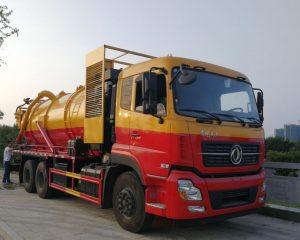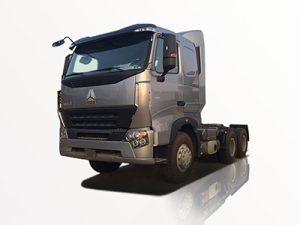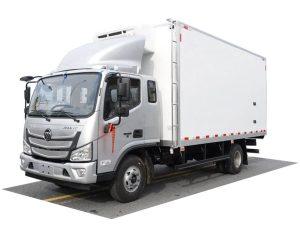Monday to Saturday - 8:00 -17:30
Top Auto Gas Tank Manufacturers: A Comprehensive Guide
The automotive industry relies heavily on various components, one of the most crucial being gas tanks. Gas tanks serve as the storage unit for fuel, ensuring that vehicles run smoothly and efficiently. As technology advances, so do the materials and manufacturing processes involved in producing gas tanks. In this article, we will explore the leading auto gas tank manufacturers, the materials they use, emerging technologies in gas tank production, and tips for choosing the right one for your vehicle.
Understanding Auto Gas Tanks
Before diving into the manufacturers, it’s essential to understand what auto gas tanks are and their function. Gas tanks are designed to hold fuel in various types of vehicles, including cars, trucks, and motorcycles. They are typically made from materials like steel, plastic, or composite materials, each offering unique benefits and drawbacks.
The Importance of Quality in Gas Tanks
Quality is paramount when it comes to gas tanks as they directly impact vehicle performance and safety. A well-manufactured gas tank should prevent leaks, resist corrosion, and withstand impacts from potential accidents. Moreover, it should comply with regulatory standards to ensure safety and efficiency.
Leading Auto Gas Tank Manufacturers
1. Continental AG
Continental AG is a prominent automotive supplier known for its innovations in gas tank technology. They produce plastic gas tanks that are lightweight and designed for maximum safety. Their products often feature integrated fuel systems and advanced materials to minimize weight while maintaining structural integrity.
Example Products
- Lightweight Plastic Fuel Tanks
- Integrated Fuel Systems
2. TI Automotive
TI Automotive specializes in automotive fuel systems, including gas tanks. Their cutting-edge technology focuses on improving fuel efficiency and vehicle performance. Their tanks are designed with advanced manufacturing techniques that optimize space within the vehicle.
Example Products
- Fuel Delivery Modules
- Advanced Fuel Tanks
3. Denso Corporation
Denso Corporation is a global leader in the automotive industry, providing a variety of components, including gas tanks. Known for their reliability and efficiency, Denso adds technological advancements in their manufacturing processes, ensuring fuel safety and optimal performance.
Example Products
- High-Efficiency Gas Tanks
- Fuel System Components
4. Magna International
Magna International is known for its diverse automotive products, including gas tanks made from lightweight materials. Their innovative designs are focused on enhancing safety and reducing vehicle weight for better fuel efficiency.
Example Products
- Aluminum Gas Tanks
- Composite Fuel Tanks
5. BENTELER
BENTELER is a leading manufacturer that specializes in automotive components, including gas tanks. They focus on sustainable manufacturing practices and offer a range of products made from durable materials that are resistant to corrosion.
Example Products
- Steel and Composite Fuel Tanks
- Customizable Tanks
Materials Used in Gas Tank Manufacturing
1. Steel
Steel has been a traditional material for gas tanks due to its strength and durability. However, it is heavier than other alternatives and can corrode over time, requiring protective coatings.
2. Plastic
Plastic gas tanks have gained popularity because they are lightweight, resistant to corrosion, and can be molded into complex shapes. They offer flexibility and durability but can be sensitive to extreme temperatures.
3. Composite Materials
Composite materials, often used in high-performance vehicles, offer the best of both worlds: lightweight and durability. These tanks can withstand impacts and temperature changes but are more expensive to manufacture.
Emerging Technologies in Gas Tank Production
Manufacturers are continuously innovating the way gas tanks are produced. New techniques, such as 3D printing and advanced robotics, are being adopted to improve precision and reduce costs.
1. 3D Printing
3D printing allows manufacturers to create complex designs and prototypes rapidly. This technology can facilitate the production of custom gas tanks that fit specific vehicle models more efficiently.
2. Robotics
The use of robotic automation in gas tank production enhances precision and reduces human error, leading to a consistent quality of output. This innovation also speeds up the manufacturing process, allowing for quicker delivery times.
Choosing the Right Gas Tank for Your Vehicle
1. Vehicle Compatibility
Ensure that the gas tank you consider is compatible with your vehicle’s make and model. Check with manufacturers or consult the vehicle’s manual for guidance.
2. Material Choice
The choice of materials will affect the performance of the gas tank. Consider factors like weight, cost, and durability when selecting the right tank for your needs.
3. Compliance with Safety Standards
All gas tanks must adhere to safety regulations. Make sure that the manufacturer provides documentation proving compliance with local and international standards.
4. Manufacturer Reputation
Quality matters, so opt for well-known manufacturers with positive reviews. Research online and consult forums to gather feedback from other vehicle owners.
Maintenance Tips for Gas Tanks
Regular maintenance is crucial for ensuring the longevity and effectiveness of your gas tank.
1. Inspect for Leaks
Regularly check for any signs of leaking fuel. Look for stains or smells around the gas tank area and repair any issues immediately.
2. Clean the Fuel System
Periodically, consider cleaning the entire fuel system, including the gas tank, to remove any built-up debris or contaminants.
3. Use High-Quality Fuel
Using high-quality fuel can help in keeping the gas tank clean and function efficiently. Avoid low-grade fuels that may contain impurities.
FAQ Section
1. What materials are commonly used in gas tanks?
The most common materials include steel, plastic, and composite materials, each with its advantages and disadvantages.
2. How do I know if my gas tank needs replacing?
If you notice fuel leaks, corrosion signs, or if your vehicle runs poorly, it may be time to replace your gas tank.
3. Are aftermarket gas tanks reliable?
Aftermarket gas tanks can be reliable if manufactured by reputable companies and meet safety standards. Always research brands before purchasing.
4. Can I install a new gas tank myself?
While it is possible for experienced DIYers, it is recommended to seek professional help for gas tank installation due to safety concerns and the complexity involved.
5. How often should I inspect my gas tank?
Regularly inspect your gas tank, at least every few months, and during routine maintenance checks or oil changes.
6. What should I do if I smell fuel?
If you smell fuel, turn off your vehicle immediately and inspect for leaks. If you detect any issues, consult a mechanic right away.









